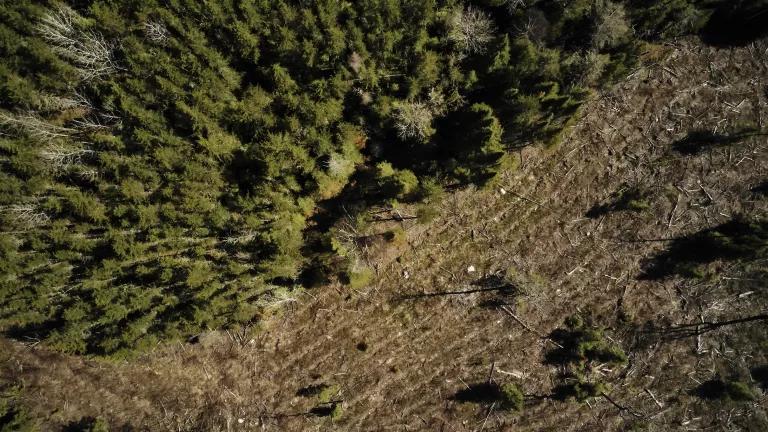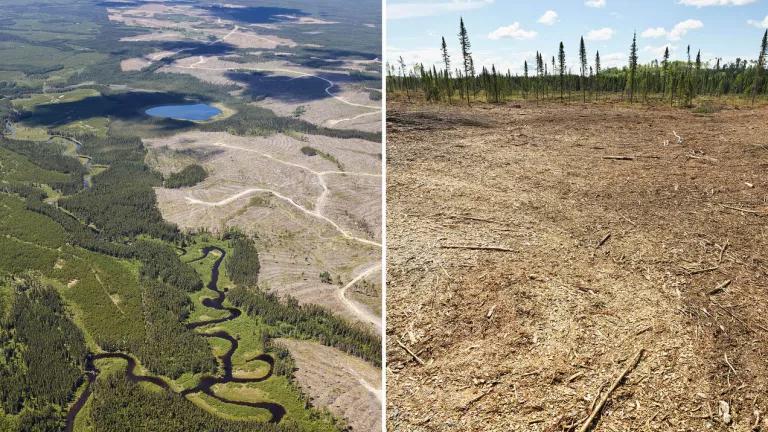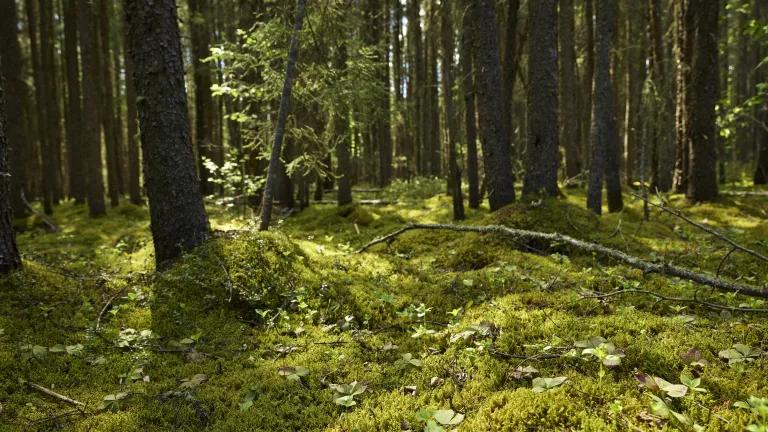Investors' Directive to P&G: Stop Driving Deforestation
Now, it's up to P&G to act on their investors' recommendation.

Yesterday, Procter & Gamble’s shareholders issued a clear directive to the company: stop destroying forests for your products. A landslide 67% of P&G’s shareholders voted in favor of a resolution put forward by Green Century Equity Fund that calls on the company to report on how and whether it can eliminate deforestation and intact forest degradation from its supply chain, which was the highest vote for a shareholder resolution on deforestation in history.
This news is all the more significant because it indicates that, for companies sourcing from Canada's boreal forest and globally, investors will no longer tolerate supply chains that require the destruction of intact forests, which harms communities, biodiversity, and the global climate.
Remarkably, this vote ignores the wishes of P&G’s Board of Directors, who recommended shareholders oppose the measure. P&G’s Board made the case that the company is already doing enough to address risks created by its continued reliance on Canadian boreal fiber for throwaway tissue products and palm oil from Southeast Asia, despite evidence that the company sources from intact forest areas and threatened species habitat in the boreal and has ties to forced labor, land grabbing, and human trafficking in Indonesia and Malaysia.
But as more and more people are harmed by the effects of the climate emergency and climate experts highlight that protecting intact forests is critical to stabilizing the climate, it is increasingly impossible for investors to ignore the very real effect that their investments have on the planet. And the world’s biggest asset managers face their own growing scrutiny for their sustainability policies and proxy votes. Notably, BlackRock--the largest asset manager in the world--announced that it supported the resolution, which is the first time the firm has voted in favor of any deforestation-related resolution ever.
P&G, for its part, however, has a long track record of lagging behind their peers in sustainability, both with regard to their palm oil sourcing and their pulp purchasing from Canada’s boreal forest. Furthermore, P&G has endured years of public scrutiny and negative press attention for its sourcing practices in Canada’s boreal forest and Southeast Asia.
In the Canadian boreal, P&G sources from intact boreal forest and threatened boreal caribou habitat. P&G also sources from Indigenous Peoples’ lands and does not require its suppliers to secure free, prior, and informed consent when operating in these areas, which is recommended by the United Nations Declaration on the Rights of Indigenous Peoples. Contrary to P&G’s claims about Canadian forestry operations, Canada is losing its intact forests faster than any other country besides Russia and Brazil, and recent research shows that deforestation in Canada is far greater than the government estimates.
With regard to P&G’s palm oil sourcing, the company similarly fails to mitigate risk. A recent import ban on palm oil from one of P&G’s biggest suppliers because of its ties to forced labor in Malaysia garnered significant negative press while also demonstrating the material risks of P&G’s current sourcing practices.
As the largest purchaser of boreal pulp for tissue in the U.S., P&G could have a huge impact by enacting stronger corporate sourcing policies to protect Canada’s boreal forest and to uphold Indigenous rights. Investors clearly care that the boreal is not only a vital carbon storehouse and the largest remaining intact forest on the planet, it is also home for more than 600 Indigenous communities, whose ways of life are intertwined with the health of the forest, and who have a right to determine for themselves how they use their land.
This is also a wakeup call to all companies sourcing from Canada’s boreal forest and the Canadian logging industry that the time is long past to reduce their impact on intact forests that are essential for Indigenous Peoples, biodiversity and our climate.
It is rare that investors ignore the advice of corporate leadership in such an overwhelming fashion. But by siding with concerned citizens, environmental and human rights organizations, the biggest asset managers are sending a strong message that P&G must do more.
The choice now for P&G is whether they will heed the recommendation of their investors and the pleas of hundreds of thousands of citizens and more than 135 organizations. Will they choose to work with NRDC and others to establish a more sustainable supply chain, or feel the heat from an emboldened, ever-growing coalition of advocates and activists?




